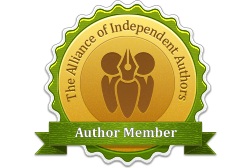A few weeks ago in my New Testament 3 class we studied the books of 2 Peter and Jude. One of the major topics of these two books is false teachers. Each book makes it clear that these men and women came from “among the people” and “among you,” rather than outside the Church. False teachers do not come from outside the Church through the media, other religions, etc…but arise from within particular church communities. It is within the communities of Christ that these intruders “introduce destructive heresies” secretly (2 Pet. 2:1b). They are not overt about their introductions, but instead secretly introduce doctrines and teachings that are foreign to the rule of faith and Holy Scriptures.
My friend and colleague, Jason Myers, and I had a conversation about whether it is possible to identify false teachers in 21st century America. We wondered aloud whether the Church has the ability and permission to identify, name, and address men and women who are teaching doctrines and practices that are foreign to the Rule of Faith of the Church in our democratic, multi-cultural, postmodern context.
Is it even possible to ID false teachers in an environment that exalts every voice and every perspective equally? In a “the-world-is-flat” culture, how can the Church of Jesus Christ contend for the Rule of Faith that was given and entrusted to the Church by Jesus? And perhaps more importantly, now that that same ethos has entered into the Church (empowering everyone to have as equal a perspective and interpretation on Scripture and that Rule), while at the same time Her members are incredibly biblically illiterate and ignorant of church history, how can the Church protect Herself against those within the Church who slip in unnoticed and begin teaching so-called heresy?
These questions are not directed at one particular end of the theological and ecclesiastical spectrum. I think these people exist on the right and left equally. Given the unique point in history the Church find herself in, I think there is a real possibility of such people slipping in and creating destruction. Given the weightlessness that plagues modern American Christianity—a sort of “tumbleweed complex” in which She is completely untethered from the historic faith—coupled with mass biblical and theological illiteracy, there seems to be a great need to take the reality of false teaching and false teachers more seriously.
How that looks, though, is a mystery…














one aspect that i have been thinking about lately is how jesus himself was executed for blasphemy and political unrest. jesus was very much a false teacher in the midst of his own faith. yet it is he that we follow. it makes one wonder how much of our historic faith has been false and how much of it has actually been true…
While Jesus was executed for blasphemy, he was also incredibly literate in Torah, and believed he was fulfilling the heart of the law. A false teacher might also be executed for blasphemy, but perhaps would either lack in literacy or miss the heart. Huge difference.
Thanks for getting us to think about this. I believe what you are saying is timely. My main goal in what I write or speak about is getting Christian artists/creatives to “think” and be literate since we have public impact in not just the things we create but in what we say. How common is it for a worship leader to base a musical set not on historical, biblical truths but just relevancy? Being relevant is critical, I think. However, this is not the goal but a method. I fear this is one way a faith community allows weak or wrong teaching into her midst–through the efforts to connect to the culture. Rather than fear that activity, we need to be grounded in a sound biblical worldview as we express our faith in creative and engaging ways. This is a challenge.
I’ve been thinking through these issues myself. It seems that if you have adopted the “solo” scriptura model of interpreting Scripture, then no, you have no grounds to evaluate truth/heresy at all. Referring to the “plain reading of Scripture” begs the question, “Which one?”
However, we have a basic rule in Galatians, and we have the example of the early church and the Spirit’s witness to the church over 20 Centuries. Christianity – even 21st Century Christianity – doesn’t exist in a vacuum, although it seems many evangelicals and so-called post-evangelicals seem to think so. The original concept of sola scriptura did not intend to toss out apostolic tradition, only man’s tradition, as authoritative.
The question of course, if we do claim standing to judge what is true, is “By what tradition do we evaluate heresy?”